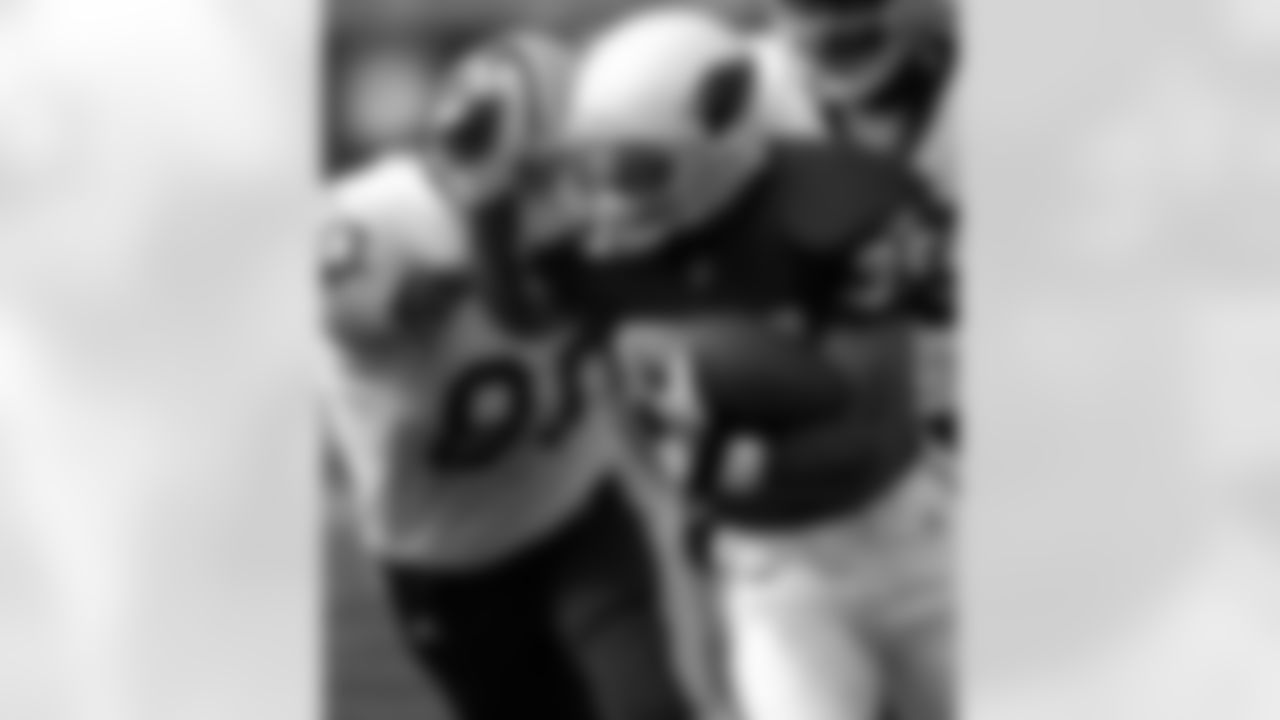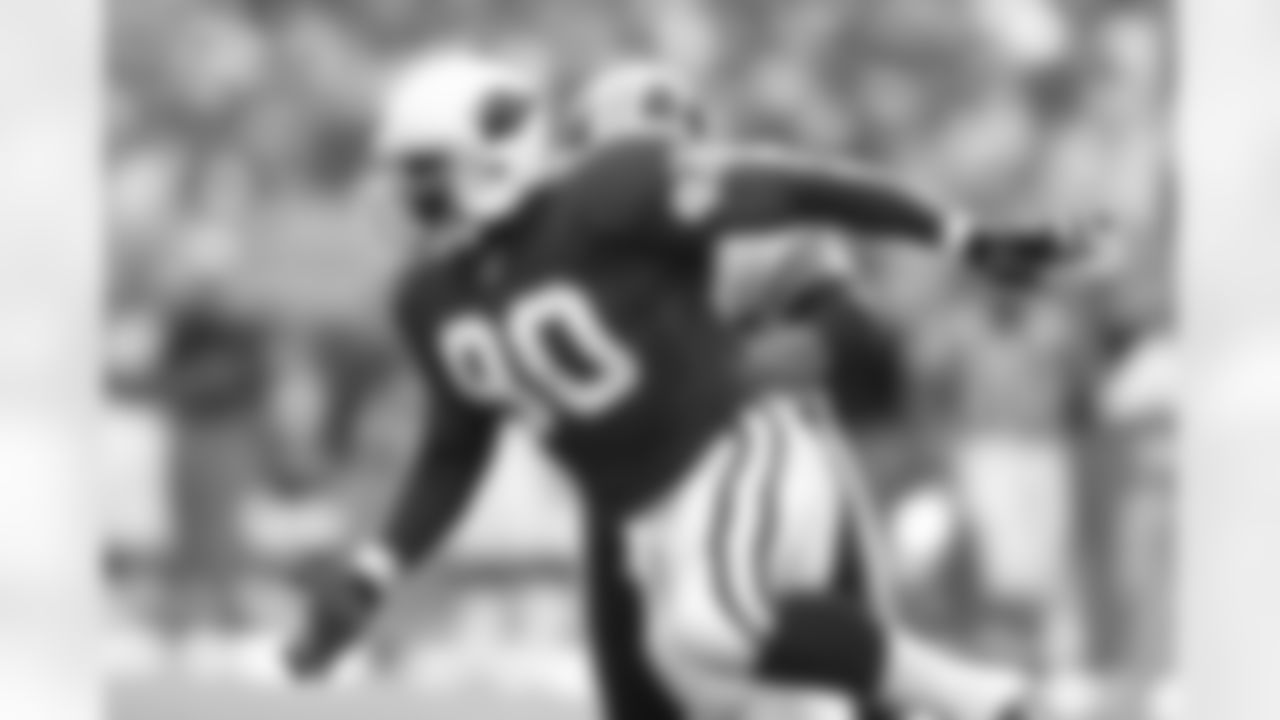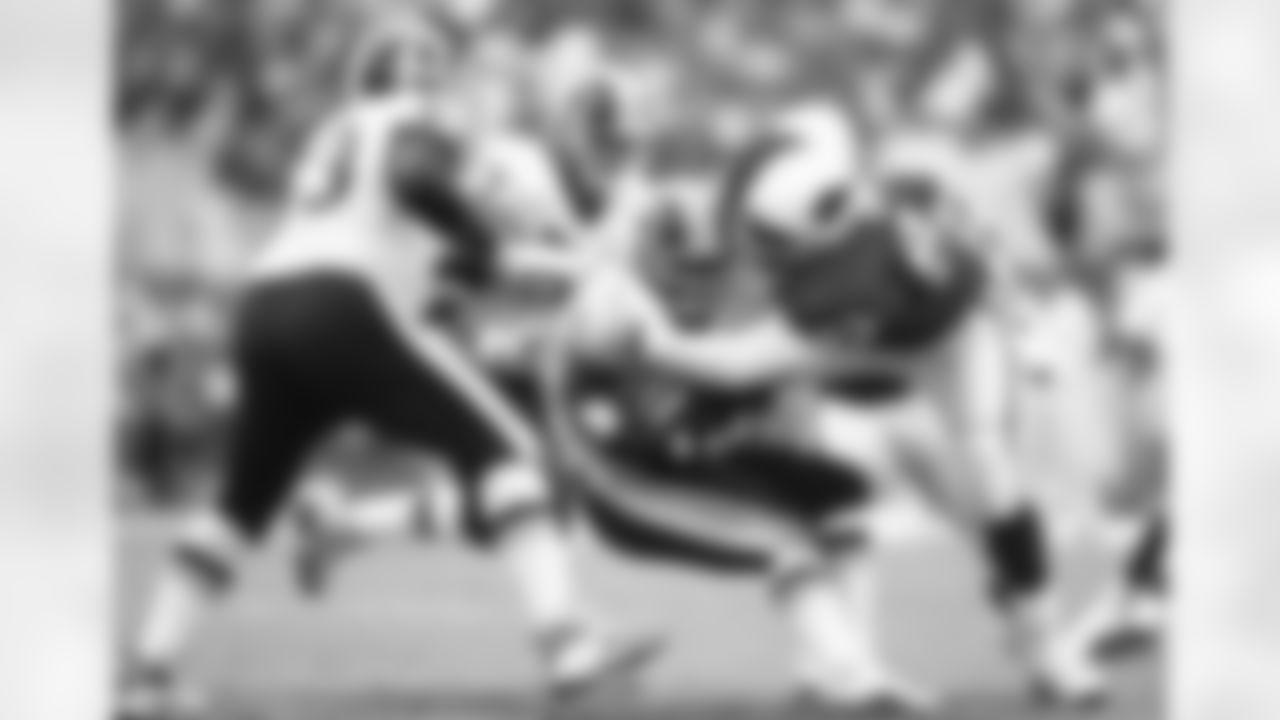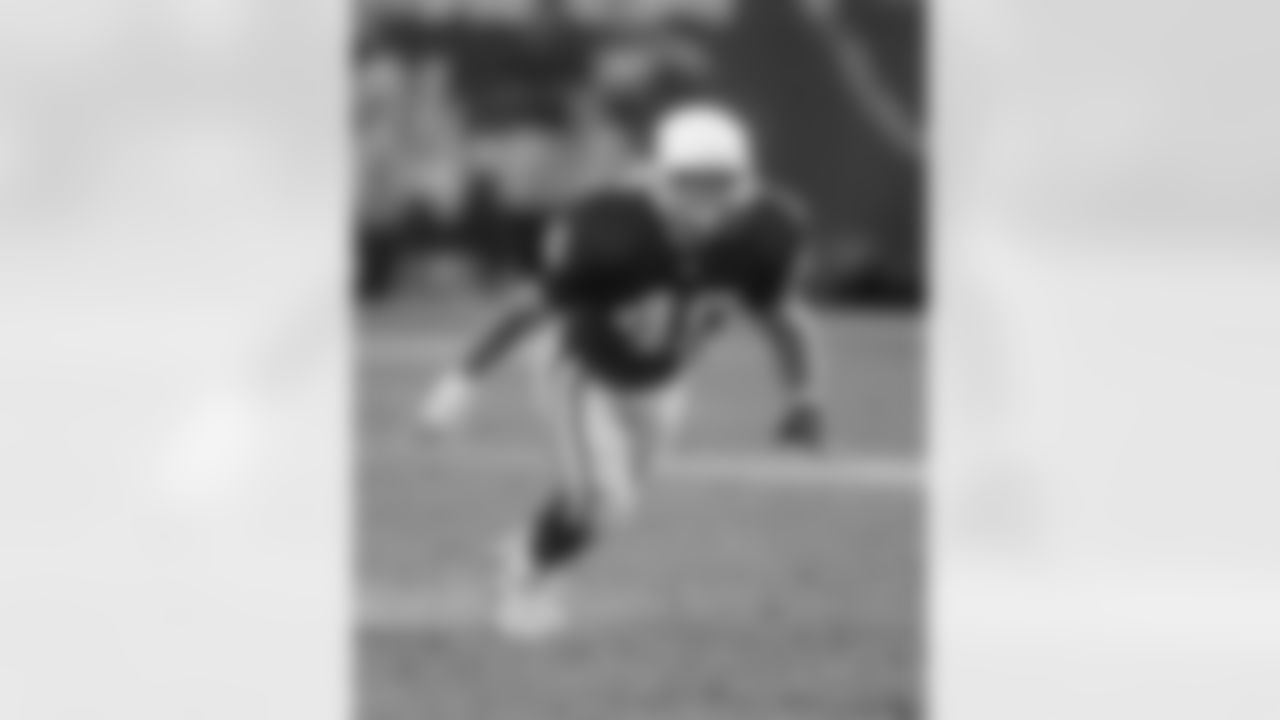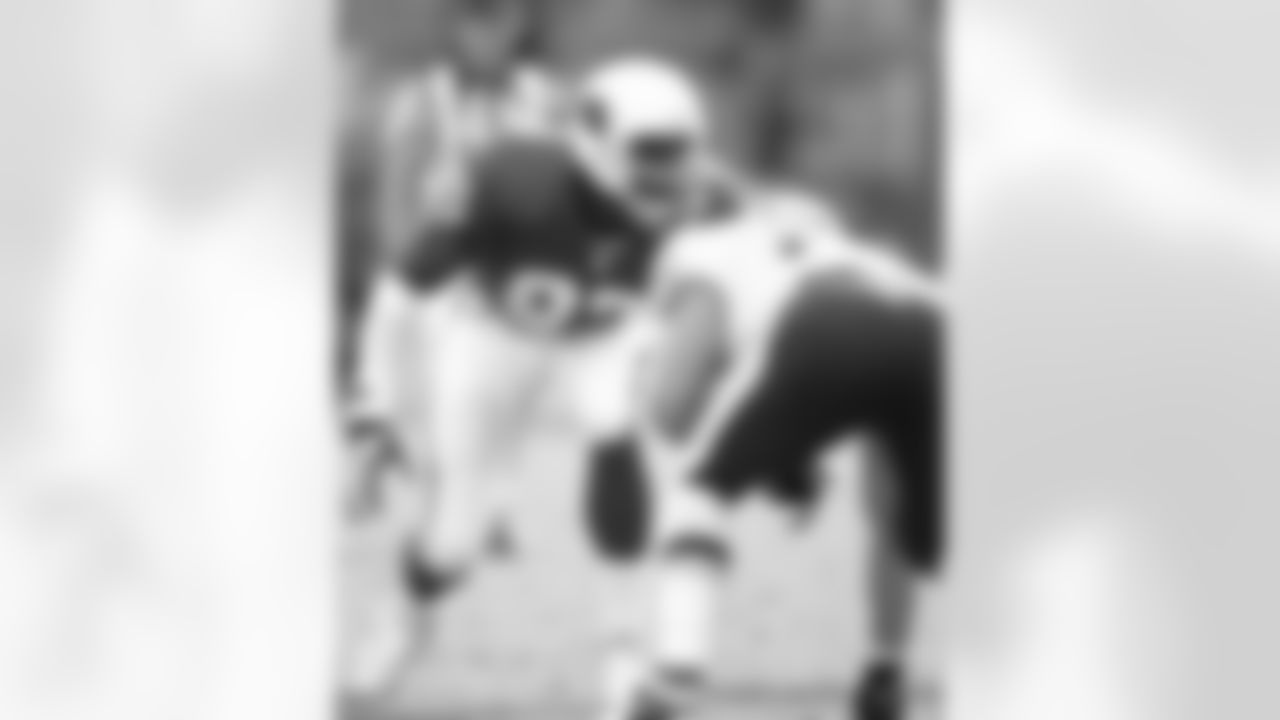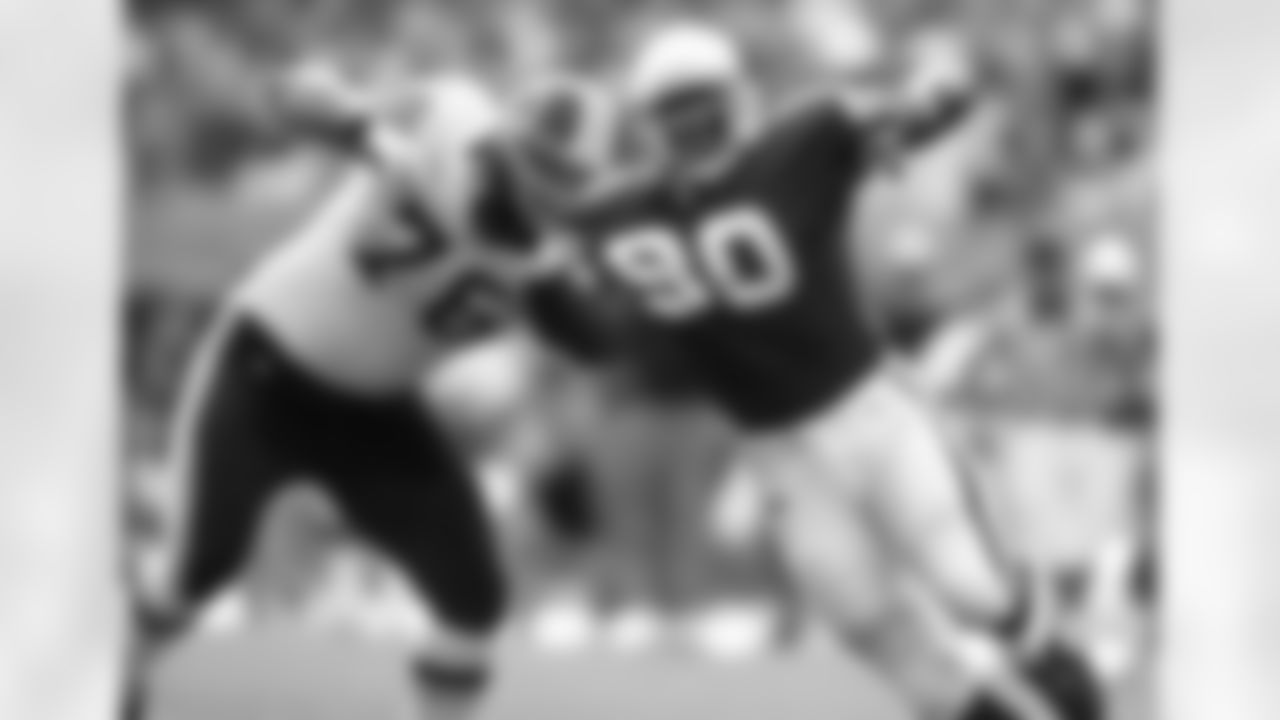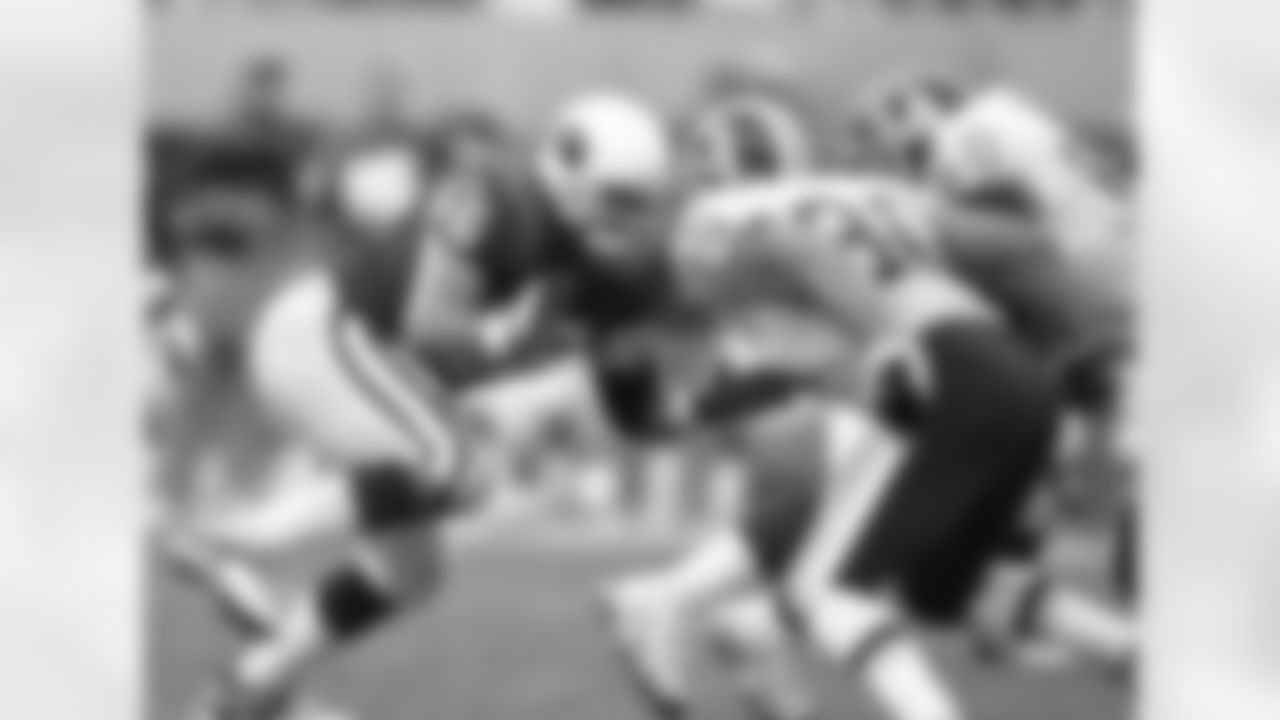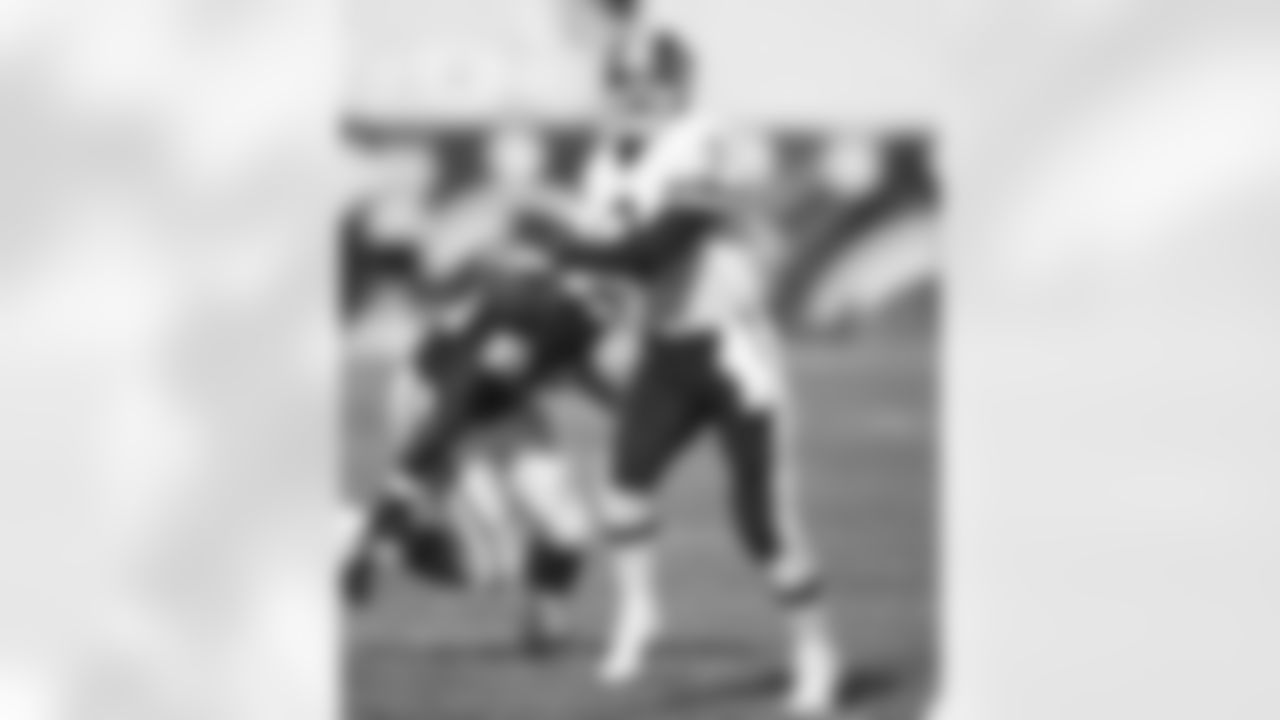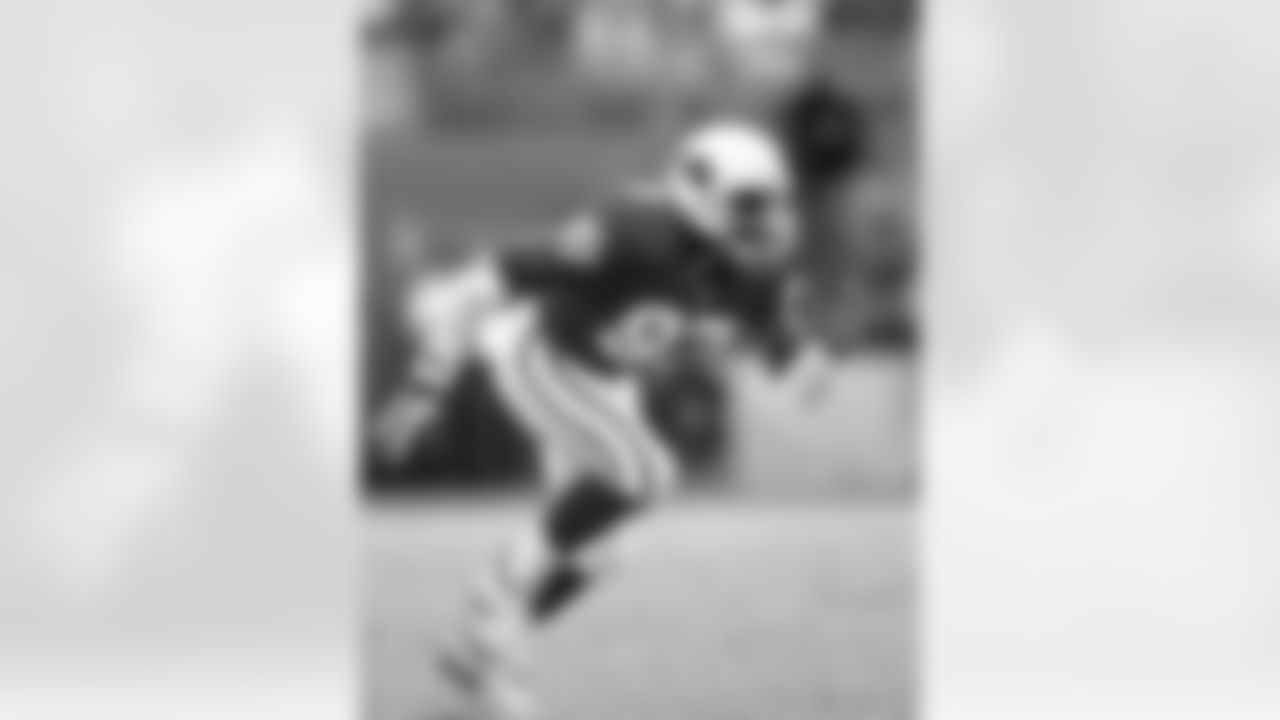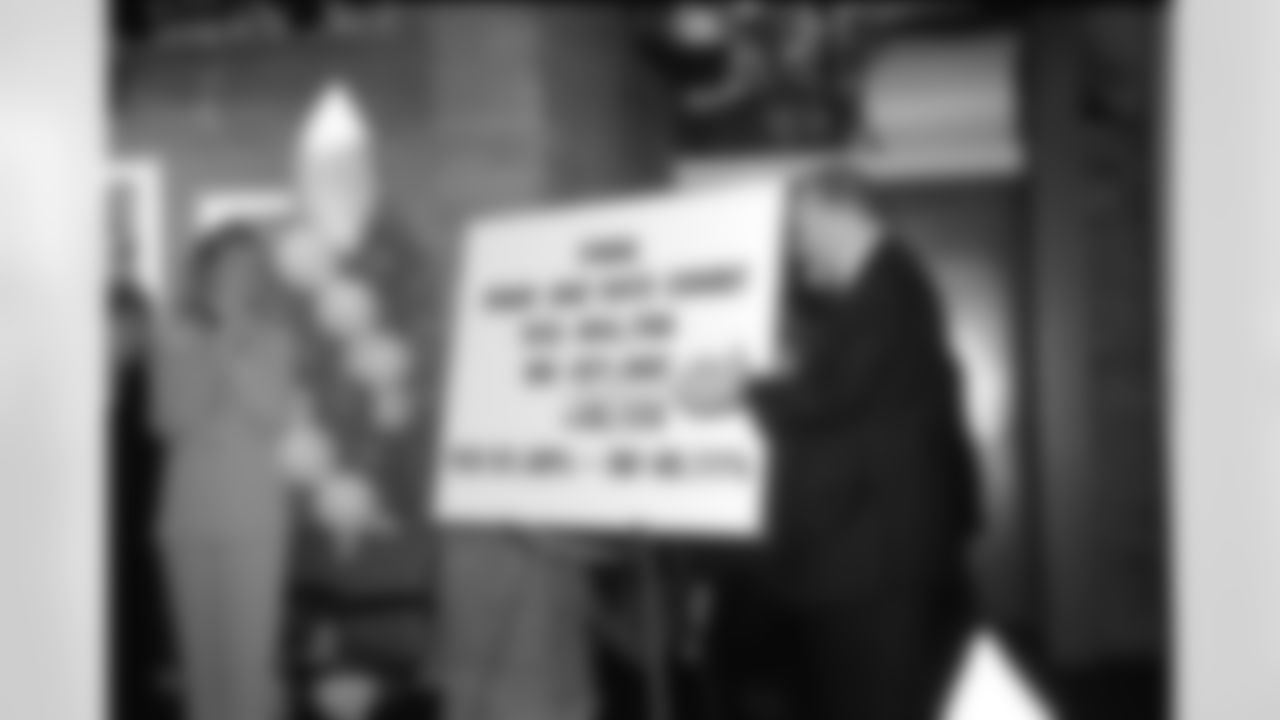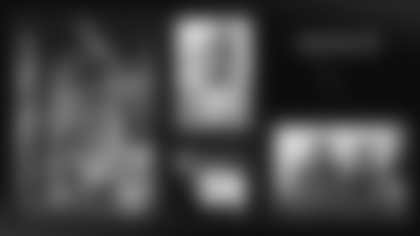The rain drizzled down, but that didn't stop Bill Bidwill and Larry Wilson from driving over to Sun Devil Stadium with their measuring tape.
The Cardinals' future Hall of Famer, Aeneas Williams, had picked up a Washington fumble in the north end zone the afternoon before and raced from inside his own end zone to the other for a touchdown. While the official scorers said the cornerback was three yards deep in the end zone, the Cardinals – and Bidwill, their owner – were sure it was a yard deeper than that.
An extra yard that would allow Williams to tie the NFL record.
So Bidwill and Wilson, the former Cardinals Hall of Fame safety and one-time GM and at this point a team vice president, went to measure. They used video of the play, measured it out, and put together a convincing argument so Williams indeed got a piece of the record.
Williams was this close to not owning the record. Just like Washington had been this close to scoring a touchdown on the play, before Stephen Davis fumbled the ball. Just like the Cardinals had been this close to losing that day, instead turning Williams' return (and two missed Washington field goals) into an improbable 16-15 upset win.
Just like, two days later, the Cards were this close to losing out on their chance for a new stadium, before the public vote produced a final tally of 52 percent to 48 percent – leading to the opening six years later of what is now State Farm Stadium.
"I can't look back and say, for sure, we would not have won the vote without that win," said Bidwill's son, Michael, who spearheaded the work on the stadium both before and after the vote. "But it sure as hell helped."
The Cardinals moved to Sun Devil Stadium when they arrived in Arizona in 1988 with the idea they would be playing in a different building soon enough. One of the factors that went into the decision the Cards made to leave St. Louis was the promise from Phoenix civic leaders playing in a college stadium would be temporary.
"It's very important for players to have a home stadium, that his home is not someone else's home stadium, where the college team's locker room is better than the professional team's locker room," former Cardinals linebacker Mark Maddox said. "It is important for you to have some sense of stability. How can you have a home team, our home games, at a place that really isn't a home facility?"
More than a decade later, finding a new home was very much a question.
Trying to fix the issues, the Cardinals worked to get Prop. 302 on the ballot in 2000. Even that was a struggle, passed by a single vote in the legislature. In the Cardinals' favor was that 302 was about more than just a stadium. It was to boost the state's tourism promotion budget, it provided money to upgrade spring training facilities to keep the Cactus League viable, and it provided money to build facilities for youth sports across the Valley.
So the 2000 season played out on dual tracks for the Cardinals. On the field, it was rough, having gone from a team that won a playoff game two seasons earlier to a team that fired coach Vince Tobin seven games into the year. Off the field, even with a coaching change, there was heavy campaigning – from Bidwill, from coaches, from players.
"I'm not a politician, don't ever want to be in politics," former quarterback Jake Plummer said. "But that was really interesting to go around and as we called it, stumping for the new stadium for prop 302.
"They would probably be the L.A. Cardinals if not for that. Players knocking on doors. There's a church that's a voting center, there were people coming to vote. And I was standing on a big rock saying, 'Vote yes on 302.' And people were like, 'What are you doing out here?' Like, I'm trying to get the stadium. I want to be here. I want us to have a new stadium."
There was also Prop 301 on the ballot, an education tax that Michael Bidwill feared might split the vote. Arizona was naturally conservative anyway. So the push was made hard, to point out that the tax would be on hotels and rental cars and only charged to visitors from out of state.
"We shook hands and kiss babies," former wide receiver Frank Sanders said. "Yeah, we did. It was worth it."
The previous Friday morning, the last tracking poll run by Bidwill and the pro-302 group revealed the tight race, although at that point, the vote was still predicted to go down to defeat.
While the work to get the vote approved was intense, the struggles for the Cardinals were real. At 2-6, it was not easy to rally voters around the football being played.
"Unfortunately," Michael Bidwill said, "the team wasn't giving us much help."
Then came the game 48 hours before the election.
"There was a lot of work in the field," Arizona Republic reporter Richard Ruelas said. "And the Cardinals had something that most politicians don't -- a real big national platform, just days before the election."
The platform was a game against NFC East division foe Washington, two days prior. Washington, led by quarterback Jeff George, were 6-3 and battling for the division lead, with cornerback Champ Bailey and rookie linebacker LaVar Arrington on defense. Offensively, they could pound the ball on the ground with Stephen Davis.
That's how the Cardinals' defense found itself back up to its own 1-yard line on the opening drive of the game, Washington on the precipice of a touchdown.
The handoff went to Davis, and Maddox, coming in from Davis' left, flew in for the tackle. He couldn't get to Davis, but as he went by, he reached in with his left hand and dislodged the ball for a fumble. And the history-making chaos began.
The ball trickled through the legs of linebacker Zack Walz as he was coming up to make the play and rolled right to the hands of future Hall-of-Famer Williams.
"I remember the play like yesterday," Williams said.
Williams scooped the ball and headed left. Downing the ball was never an option, not with Washington's jumbo package of three tight ends and two big running backs on the field. Williams knew if he could just get clear, he had a chance to go a long way.
"My mind went right back to, you know, change of possession," Maddox said. "If we score, the defense is going to be right back on the field. So you always try to find someone quick to block, so you don't have to run 100 yards."
The return nearly ended quickly not because of a missed block but because of an official – umpire Butch Hannah was in the way. Still deep in the end zone, Williams shoved him back, barely escaping the outstretched arm of tight end Stephen Alexander. He then cut back enough so George overran the play.
"I just remember just running down the sideline, and jumping up and celebrating because, again, those are the little things that let you know that it was meant to be," Sanders said.
By the time Williams reached the Washington 20, it was clear he wasn't going to be caught. That is, until he ran through the end zone, and teammate Pat Tillman – who had run alongside Williams the length of the field -- tackled him from behind in celebration.
When Williams got to the sideline, Sanders reached out for a hug, and Williams jumped into his arms.
"One of the greatest things that happens in the game of football is when your teammates all come in and dive in on you, celebrating with you," Williams said. "That's the beauty of sports. But right before they did that, I jumped up to really try to slap as many fans as I could
"It's one of those feelings where it's total satisfaction."
On the ensuing drive, Williams picked off George to set up a field goal. By the time it was over, the Cardinals had a win they shouldn't have.
Of the 16 points the Cardinals scored, they totaled 27 yards of combined offense on two "drives" – seven yards after Williams interception, and 20 yards for a touchdown after a long MarTay Jenkins kickoff return. Washington twice had a chance to pull ahead in the fourth quarter, but Kris Heppner missed field goal tries from 51 and 33 yards. Washington outgained the Cardinals, 422-178, and ran 78 plays to the Cards' 44.
Yet the Cards had the victory, hoping for one more two days away.
"We need the fans one more time," said then-Cardinals coach Dave McGinnis, who had also gone out campaigning the previous two months, during his postgame press conference. "We need you one more time."




